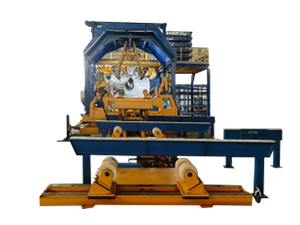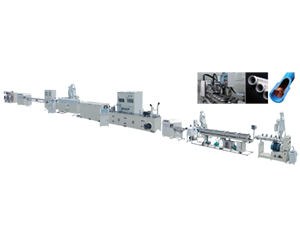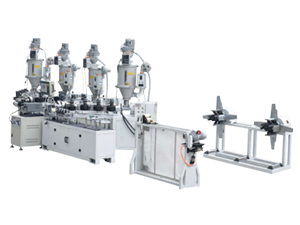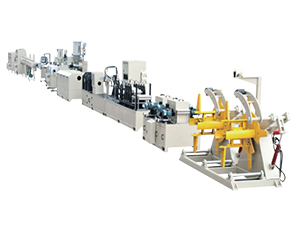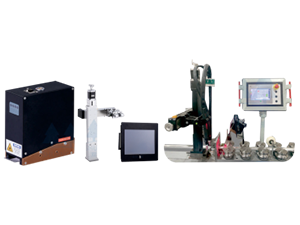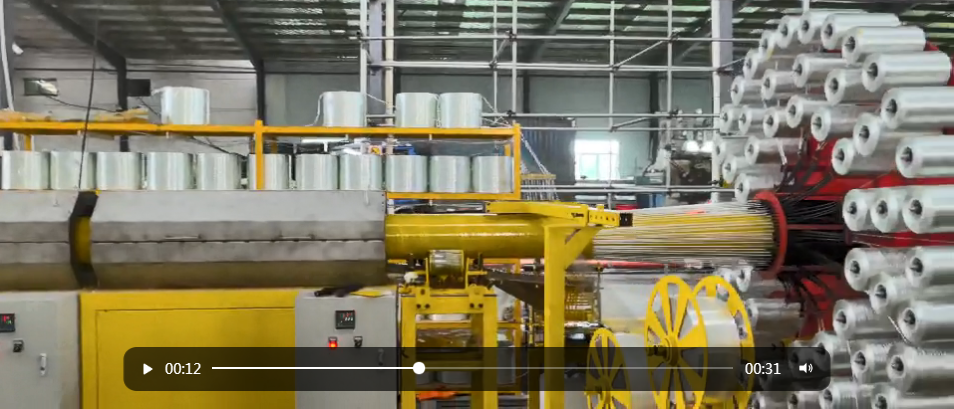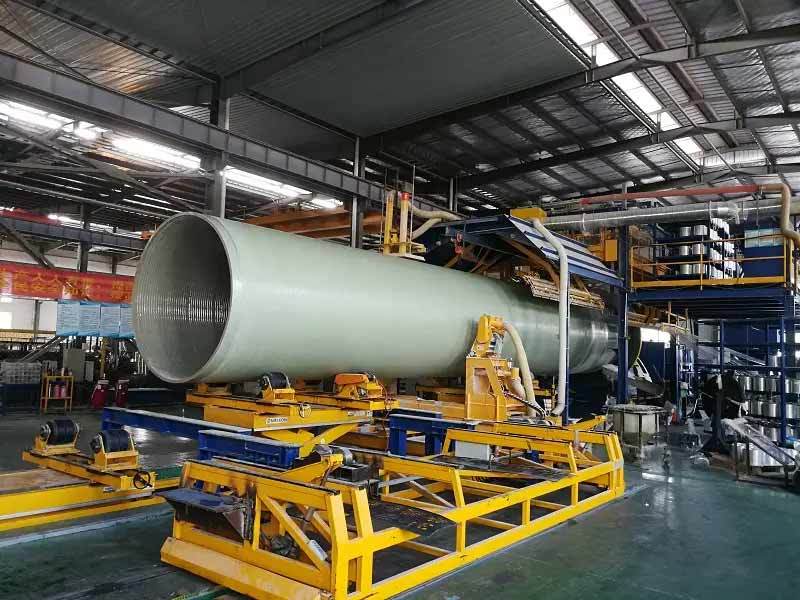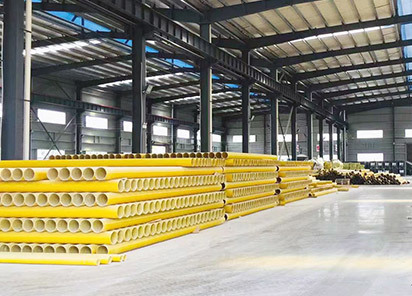What Makes GRP Pipe CFW Machines Essential for Modern Manufacturing?
May 01,2025
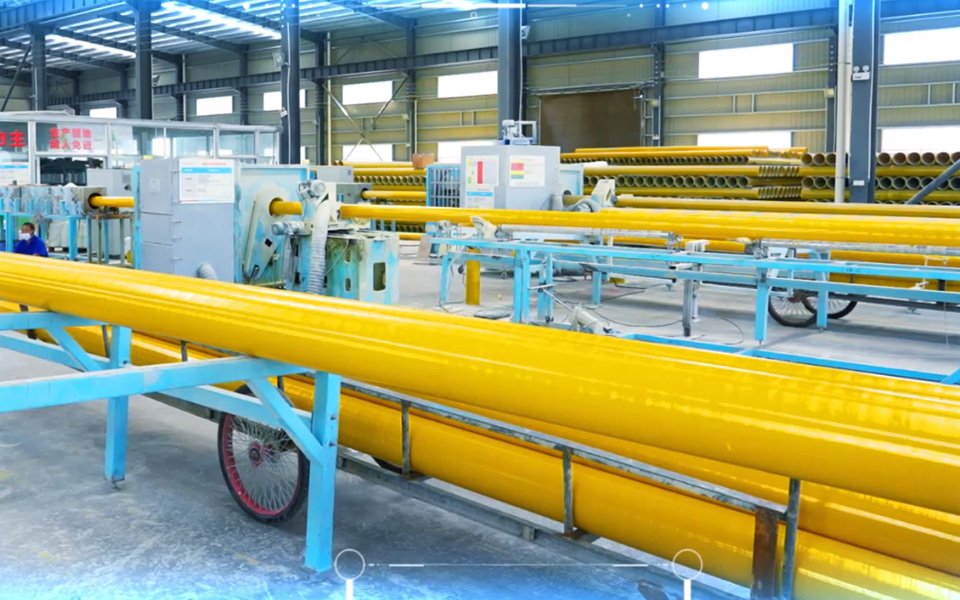
What Makes GRP Pipe CFW Machines Essential for Modern Manufacturing?
Modern manufacturing is constantly evolving, driven by the need for efficiency, quality, and sustainability. Among the numerous innovations that have emerged, **GRP (Glass Reinforced Plastic) Pipe CFW (Continuous Filament Winding) Machines** stand out as essential tools in the manufacturing landscape. These machines are not just a passing trend; they represent a significant leap in how we produce, assemble, and utilize piping systems across various industries. This article explores the critical role that GRP Pipe CFW Machines play in contemporary manufacturing, highlighting their advantages, applications, and the future of manufacturing with these advanced machines.
Table of Contents
1. Introduction to GRP Pipe CFW Machines
2. What is GRP and Why is it Important?
3. Understanding the Continuous Filament Winding Process
4. Key Benefits of GRP Pipe CFW Machines
- Increased Efficiency in Production
- Enhanced Product Quality
- Sustainability and Environmental Impact
5. Applications of GRP Pipe CFW Machines
- Industrial Applications
- Infrastructure Projects
- Oil and Gas Sector
6. Technological Advancements in GRP Pipe CFW Machines
7. The Future of GRP Pipe CFW Machines in Manufacturing
8. Conclusion
9. FAQs about GRP Pipe CFW Machines
Introduction to GRP Pipe CFW Machines
In today’s fast-paced manufacturing world, the demand for high-performance materials is skyrocketing. Traditional materials often fall short, prompting the industry to turn towards alternatives that provide superior strength, durability, and corrosion resistance. This is where GRP Pipe CFW Machines come into play. These innovative machines utilize advanced technology to produce high-quality GRP pipes through a meticulous winding process, ensuring robust and sustainable manufacturing solutions.
What is GRP and Why is it Important?
**Glass Reinforced Plastic (GRP)** is a composite material made from a polymer matrix reinforced with glass fibers. It is renowned for its exceptional strength-to-weight ratio, corrosion resistance, and durability. The importance of GRP lies in its versatility and ability to withstand harsh environmental conditions, making it an ideal choice for a wide range of applications, from industrial piping systems to construction materials.
The unique properties of GRP include:
- **High Strength**: GRP is incredibly strong for its weight, providing reliable performance in demanding applications.
- **Corrosion Resistance**: It is resistant to a wide array of chemicals, making it suitable for use in hostile environments.
- **Low Maintenance**: GRP requires minimal maintenance compared to traditional materials, leading to cost savings over time.
Understanding the Continuous Filament Winding Process
The **Continuous Filament Winding (CFW)** process is a sophisticated manufacturing technique used to produce GRP pipes. This technique involves the continuous feeding of glass fibers into a resin bath, followed by winding the saturated fibers around a rotating mandrel. This process ensures uniform distribution of materials, resulting in a high-quality final product.
The steps involved in the CFW process are:
1. **Preparation**: The mandrel is prepped and coated with a release agent to facilitate easy removal after curing.
2. **Winding**: Glass fibers are wound around the mandrel in a predetermined pattern, allowing for specific mechanical properties and strengths.
3. **Curing**: The resin is cured, solidifying the structure and enhancing the durability of the pipe.
4. **Finishing**: After curing, the GRP pipe is removed from the mandrel and undergoes finishing processes such as cutting and surface treatment.
This method not only enhances the mechanical properties of the pipes but also allows for greater customization in terms of dimensions and performance characteristics.
Key Benefits of GRP Pipe CFW Machines
The adoption of GRP Pipe CFW Machines brings numerous advantages to manufacturers, making them a go-to choice in modern production environments. Here, we explore some of the key benefits in detail.
Increased Efficiency in Production
Using GRP Pipe CFW Machines significantly boosts production efficiency. The automation of the winding process reduces labor costs and minimizes human error, leading to consistent quality across batches. Furthermore, the ability to produce pipes in long lengths with seamless joints reduces installation time and costs, making these machines invaluable for projects with tight timelines.
Enhanced Product Quality
The precision of the CFW process ensures high-quality output with uniform strength and minimal defects. GRP pipes produced by these machines often exceed industry standards for pressure ratings and mechanical properties, giving manufacturers a competitive edge. The unique winding patterns can be tailored to meet specific performance criteria, further enhancing product reliability.
Sustainability and Environmental Impact
As industries shift towards sustainable practices, GRP Pipe CFW Machines align perfectly with these goals. The materials used are often recyclable, and the manufacturing process generates less waste compared to traditional methods. Additionally, GRP pipes contribute to energy efficiency in water transport and infrastructure, reducing the overall carbon footprint of projects.
Applications of GRP Pipe CFW Machines
The versatility of GRP Pipe CFW Machines enables their application across various sectors, showcasing their adaptability in modern manufacturing.
Industrial Applications
In industrial settings, GRP pipes are used for transporting corrosive liquids and gases. Their resistance to chemical attack makes them ideal for the chemical processing industry, where traditional materials might fail. Additionally, their lightweight nature simplifies installation in complex systems.
Infrastructure Projects
Many infrastructure projects, such as water supply systems, sewage systems, and stormwater management, utilize GRP pipes. Their durability ensures long-lasting solutions with reduced maintenance needs, significantly lowering lifecycle costs for municipalities.
Oil and Gas Sector
In the oil and gas industry, where harsh conditions are prevalent, GRP pipes provide a reliable solution for transporting fluids. Their resistance to corrosion and ability to withstand high pressures make them suitable for various applications, including offshore installations and pipelines.
Technological Advancements in GRP Pipe CFW Machines
The manufacturing landscape is continually evolving, and GRP Pipe CFW Machines are no exception. Recent advancements include automated control systems, enhanced software for design and monitoring, and integration with Industry 4.0 technologies. These innovations not only improve efficiency but also allow for real-time data analysis, ensuring optimal production processes.
The introduction of smart manufacturing techniques enables predictive maintenance, reducing downtime and increasing overall equipment effectiveness. As technology progresses, we can expect even greater capabilities from GRP Pipe CFW Machines, solidifying their place in the future of manufacturing.
The Future of GRP Pipe CFW Machines in Manufacturing
The future of GRP Pipe CFW Machines looks promising, with increasing demand for lightweight, durable, and sustainable materials across industries. As manufacturers prioritize efficiency and environmental responsibility, the adoption of GRP pipes is likely to expand further. The continuous development of new materials and techniques will enhance the capabilities of these machines, making them an integral part of the manufacturing ecosystem.
Conclusion
GRP Pipe CFW Machines are essential for modern manufacturing, offering unparalleled advantages in efficiency, quality, and sustainability. Their capacity to produce high-performance pipes for various applications positions them at the forefront of manufacturing technology. As we move toward a future that prioritizes innovation and environmental responsibility, GRP Pipe CFW Machines will undoubtedly play a critical role in shaping the industry. By embracing these advanced machines, manufacturers can not only meet current demands but also pave the way for a more efficient and sustainable tomorrow.
FAQs about GRP Pipe CFW Machines
1. What industries benefit from GRP Pipe CFW Machines?
Manufacturers in industries such as chemical processing, water management, oil and gas, and construction significantly benefit from GRP Pipe CFW Machines due to their unique properties.
2. How do GRP pipes compare to traditional materials?
GRP pipes offer superior corrosion resistance, lower weight, and greater durability compared to traditional materials like steel and concrete.
3. What is the lifespan of GRP pipes produced by CFW Machines?
GRP pipes can have a lifespan of 50 years or more, depending on usage conditions and maintenance practices.
4. Can GRP Pipe CFW Machines be customized?
Yes, GRP Pipe CFW Machines allow for customization in terms of pipe dimensions, winding patterns, and material properties to meet specific project requirements.
5. Are GRP pipes environmentally friendly?
Yes, GRP pipes are environmentally friendly due to their recyclability and reduced overall carbon footprint in manufacturing and usage compared to traditional piping systems.
Contact Us
E-mail:
Phone/Wechat/WhatsApp
Address:
A2-1408, Kaichuang Avenue to Tai Plaza, Huangpu District, Guangzhou City, Guangdong Province


